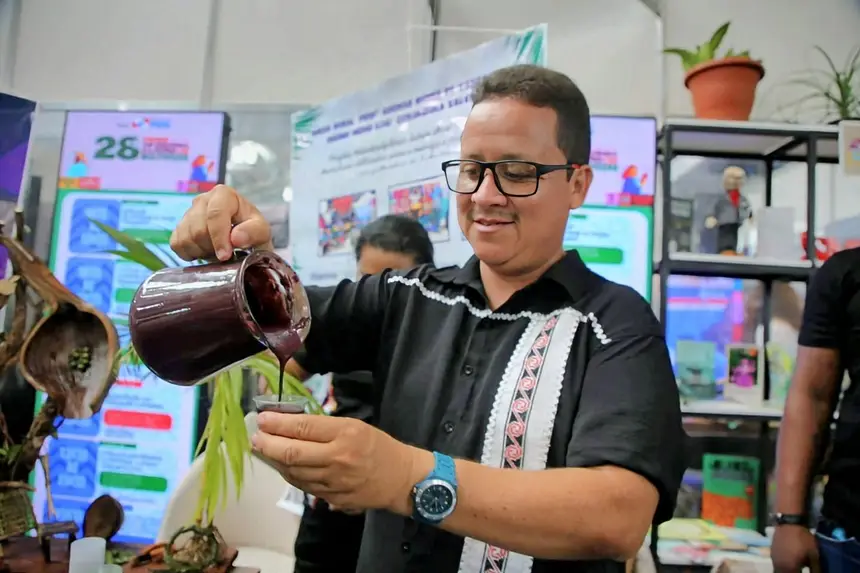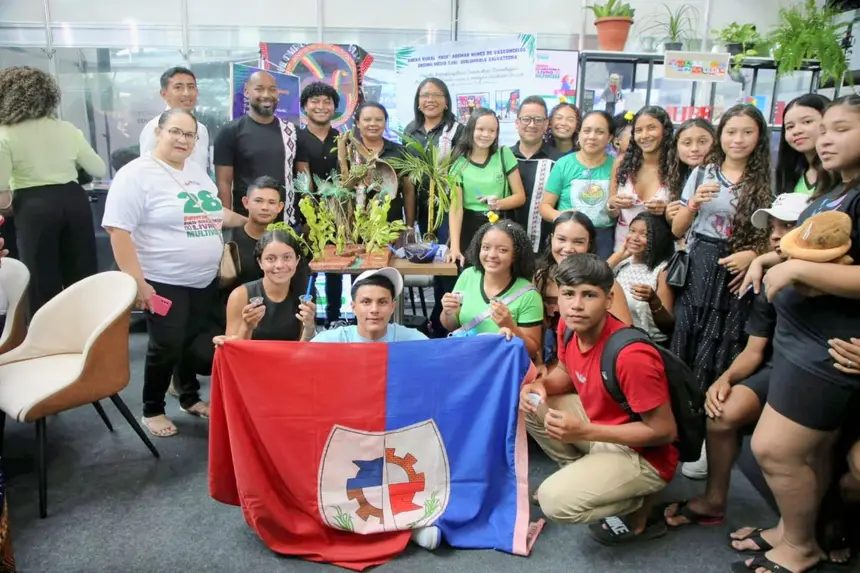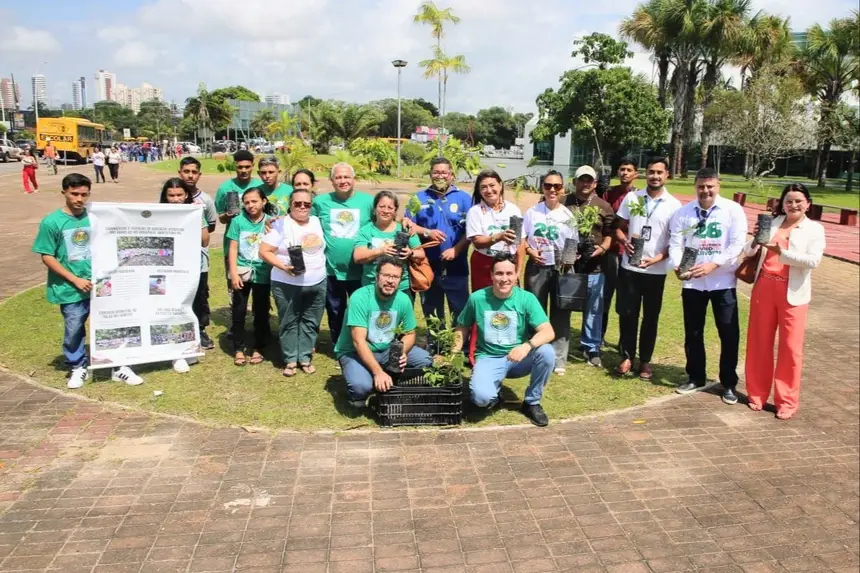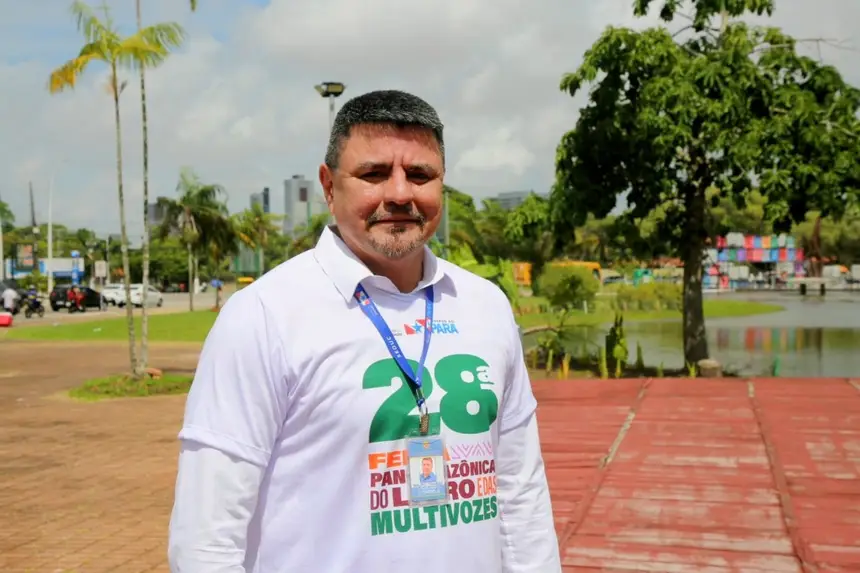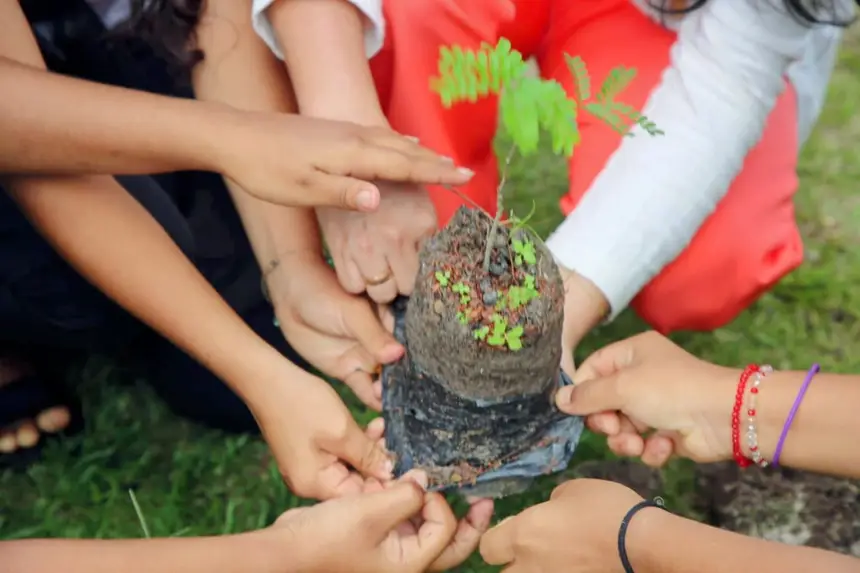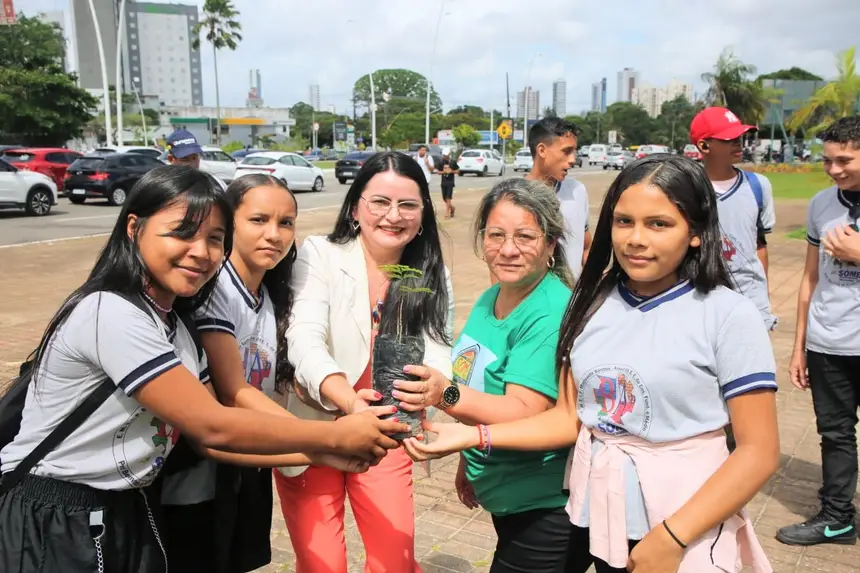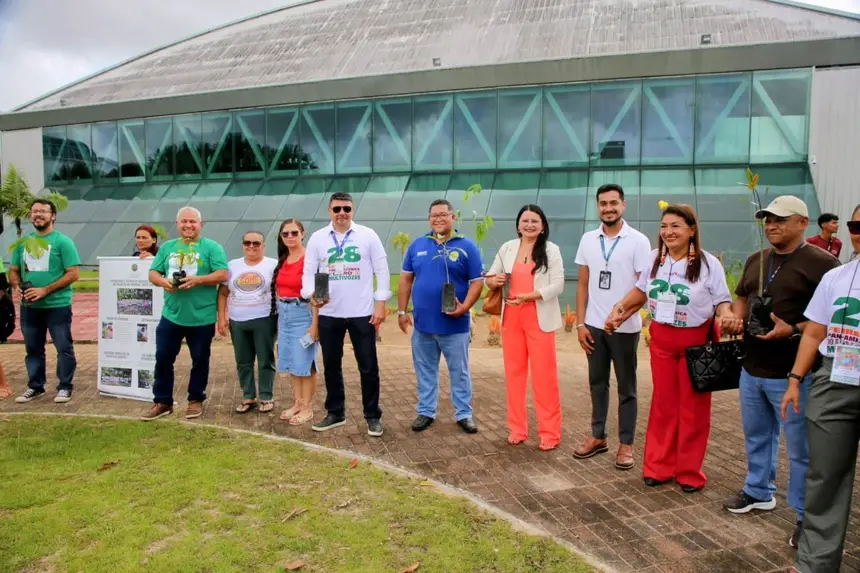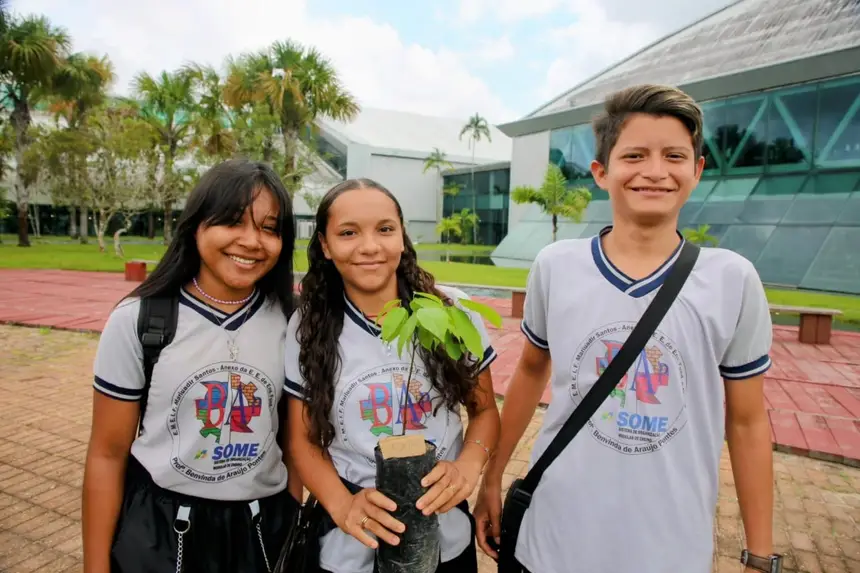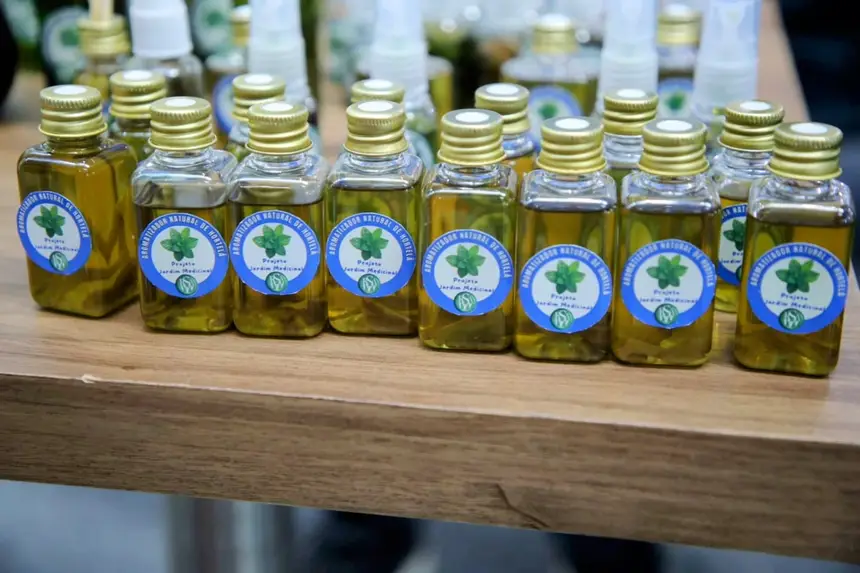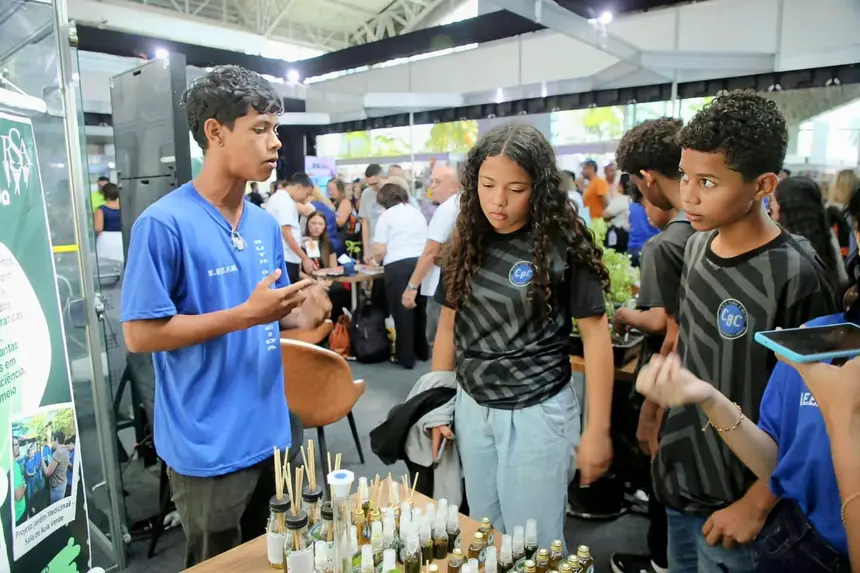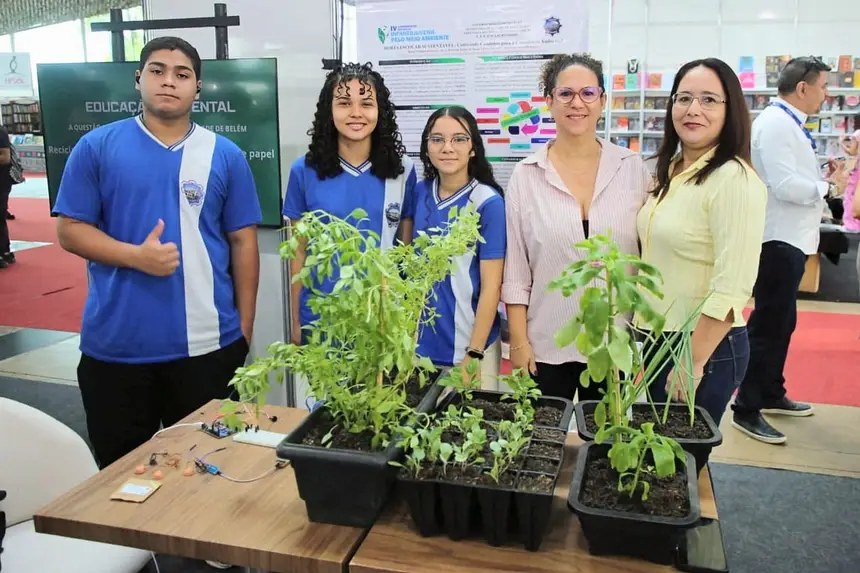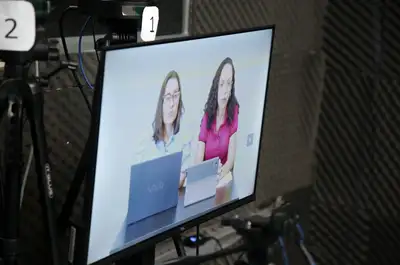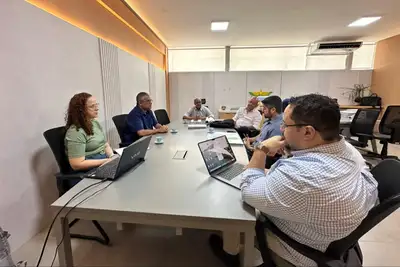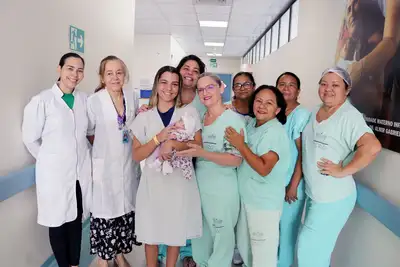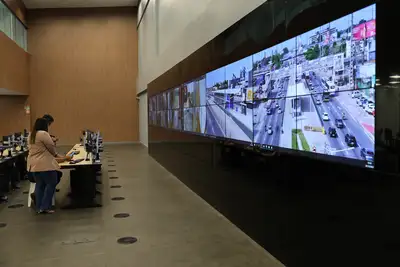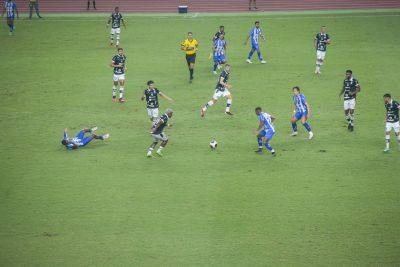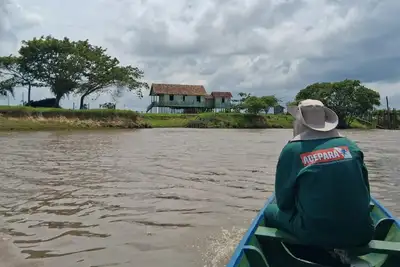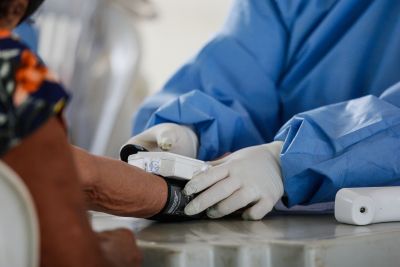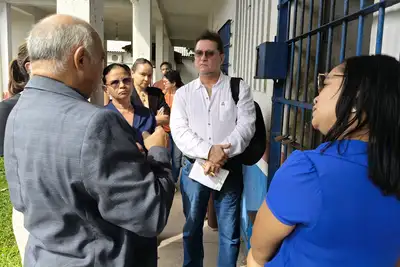Book Fair Highlights Environmental Education Projects from the State Education Network
Seduc presents sustainable initiatives developed by students from various regions of Pará
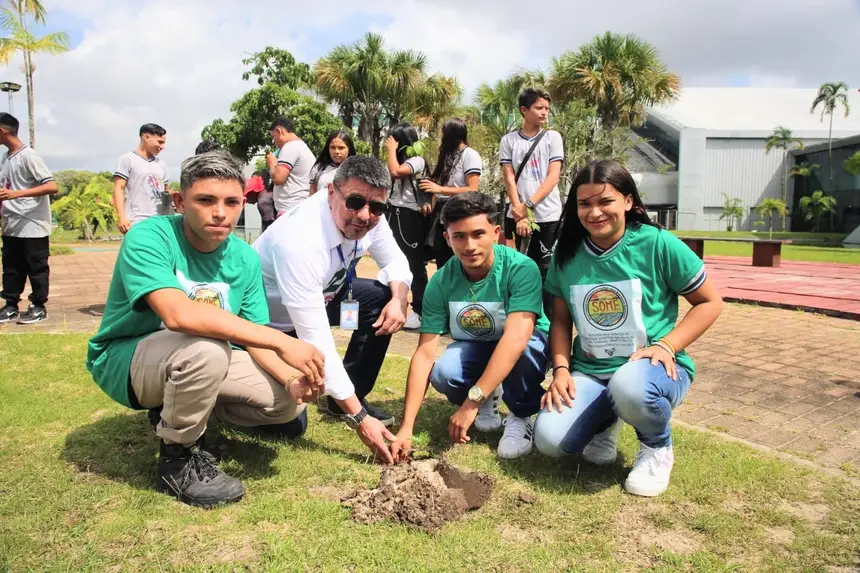
The State Department of Education (Seduc) brought to the program this Wednesday (20), at the 28th Pan-Amazonian Book and Multivoices Fair, a special exhibition focused on environmental education. Students from the state public network presented sustainable projects and participated in a symbolic planting of native seedlings in the outdoor area of Hangar – Amazon Convention Center, in Belém, reinforcing the commitment of schools to environmental preservation and youth leadership.
The action brought together more than ten schools from the Metropolitan Region of Belém, Mosqueiro, Abaetetuba, Ananindeua, and Salvaterra. The themes ranged from automated school gardens to green entrepreneurship, composting, paper recycling with seeds, coconut shell ecombucas, sustainable cities, climate justice, waste management, and the appreciation of traditional Amazonian knowledge.
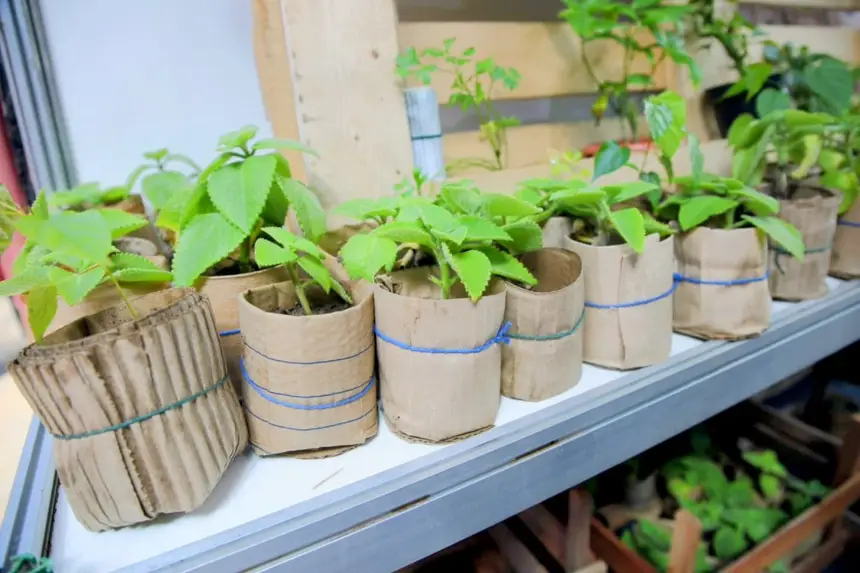
Sustainability and Technology in the School Environment
Sthefany Ramos, a 3rd-year high school student at Lauro Sodré State School, explained how the integration of sustainability and technology has inspired transformations inside and outside the school. “Our school garden is a project that has been going on for three years and shows students that it is possible to produce their own food sustainably. We developed an automated irrigation and humidity measurement system with the help of our robotics classmates. This inspires other students and families to replicate the idea at home,” she said.
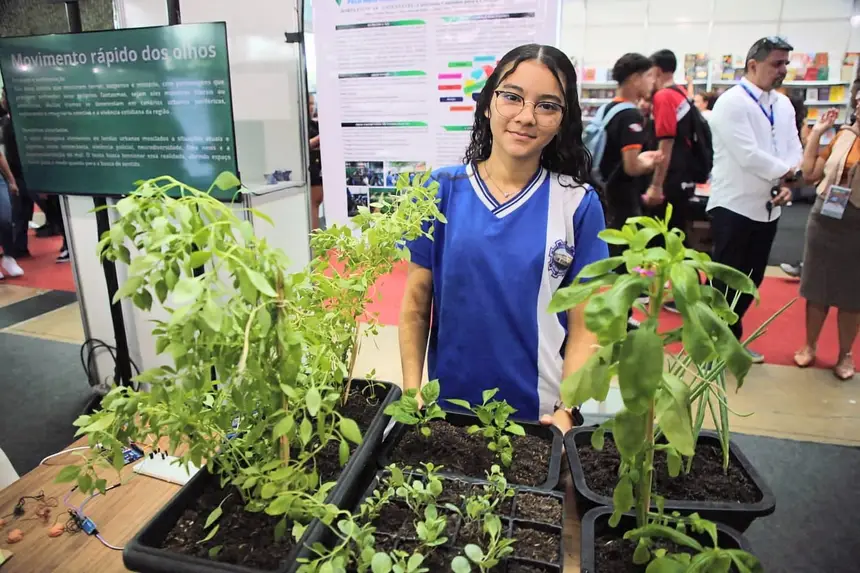
At Ruth dos Santos Almeida School, students presented the use of medicinal plants in the production of air fresheners, natural repellents, and ecological pots as part of a composting project. “These projects help us think differently and adopt sustainable practices,” said Layla Cristina, a 1st-year high school student.
Professor Arthur Silveira emphasized that the projects allow for the combination of theory and practice in teaching and learning. “Sustainability projects bring life to what we teach in the classroom. We work from the garden to green chemistry, with composting and biofertilizers. This motivates students to apply in practice what they learn,” he stated.
Valuing Traditional Knowledge from Marajó
The Seduc booth also featured the participation of quilombola students from Salvaterra, in the Marajó archipelago, who presented the project “Sabor Açaí.” The initiative values traditional knowledge in the cultivation and processing of the fruit, essential for food security and the local economy. “We brought our açaí and all the traditional knowledge that exists behind it to the booth. The project was a success in the classroom, and today we are happy to share it here, representing our community,” highlighted Professor Gleidson Melo.
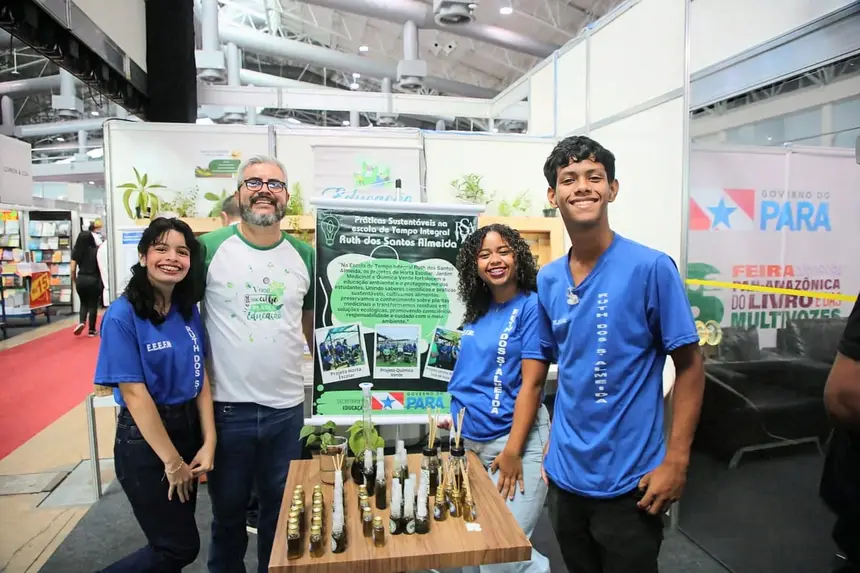
Symbolic Planting Marks Commitment to the Future
As part of the program, students from the Rural School of the Modular Education System (Some), from Abaetetuba, carried out the symbolic planting of more than 15 seedlings of native species, such as pau-brasil, ipê, and acapu. The trees were donated to the space and will remain around the Convention Center as part of the environmental legacy of the Fair.
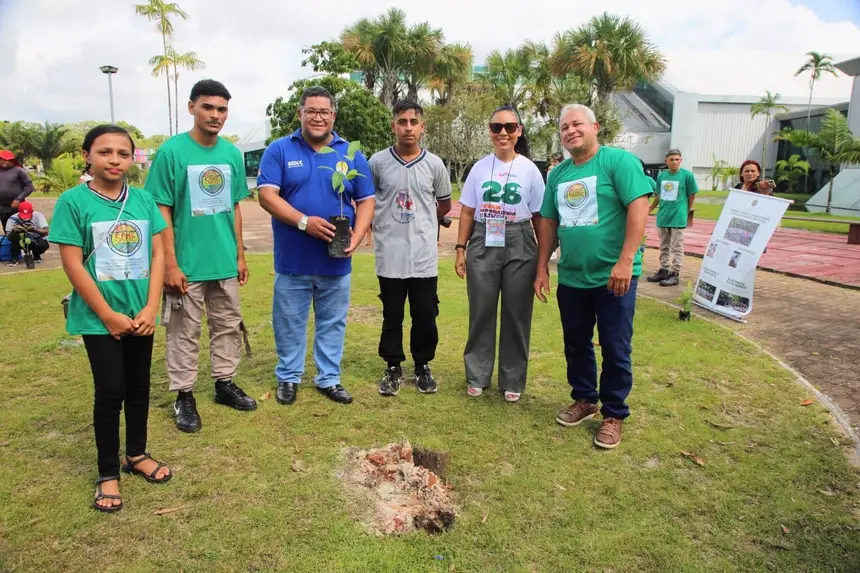
For Mauro Tavares, Environmental Education Coordinator at Seduc, the activity reinforces the formative role of education. “The planting is symbolic, but it represents an important milestone, which is to value the environment and education. Bringing students to this moment gives meaning to what they develop in the territory, uniting learning and concrete actions for environmental well-being,” he emphasized.
Environmental Education as Public Policy
Since the first semester of 2024, the State Department of Education (Seduc) has offered the Environmental Education curricular component at all stages of education, mandatorily, in state schools. The policy is also available for municipalities to adopt, according to the State Policy for Education for the Environment, Sustainability, and Climate.


